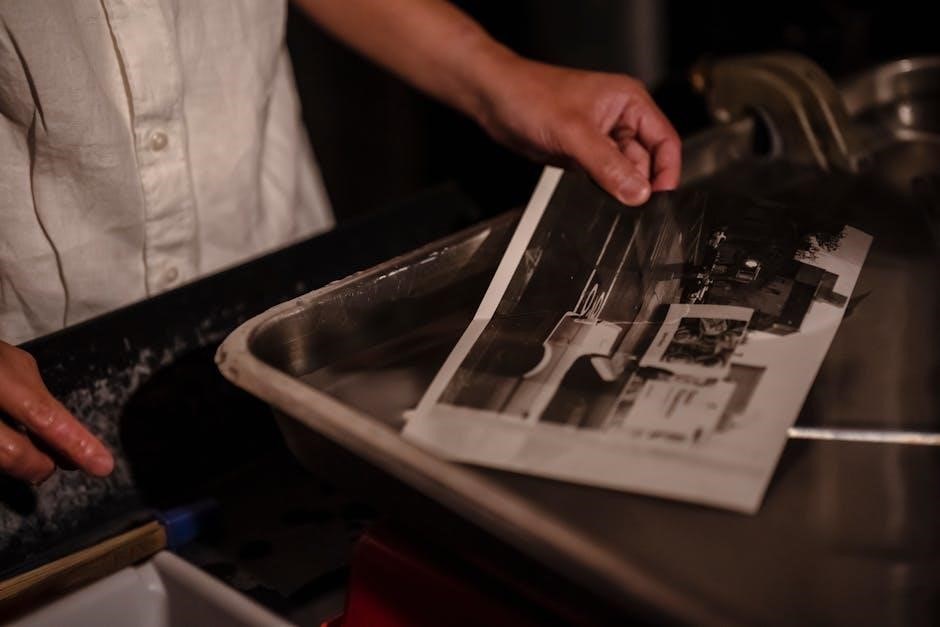New Jersey Probate Procedures Overview
New Jersey probate procedures involve legal processes and estate planning to ensure smooth asset transfer, using a probate manual for guidance and compliance with state laws and regulations always.
New Jersey probate is a legal process that occurs after a person’s death, involving the validation of their will and the appraisal of their assets. The probate process is governed by state laws and regulations, which can be complex and time-consuming. A New Jersey probate procedures manual can provide guidance and help individuals navigate the process. The manual outlines the steps involved in probate, including the filing of petitions, the appointment of an executor, and the distribution of assets. It also provides information on the different types of probate, such as formal and informal probate, and the requirements for each. By understanding the probate process and using a probate manual, individuals can ensure that their estate is distributed according to their wishes and that their loved ones are protected. This introduction to New Jersey probate provides a foundation for understanding the complex process of probate and estate planning.
Assets Not Subject to Probate
Certain assets are not subject to probate in New Jersey, including those held in trust, jointly owned property, life insurance policies with designated beneficiaries, and retirement accounts with named beneficiaries. These assets can bypass the probate process, allowing for a more efficient transfer to beneficiaries. A New Jersey probate procedures manual can provide information on how to structure these assets to avoid probate. By using trusts, joint ownership, and beneficiary designations, individuals can ensure that their assets are distributed according to their wishes, while minimizing the need for probate. This can help to reduce costs and simplify the estate administration process. Additionally, assets with a value below certain thresholds may also be exempt from probate, making it easier for beneficiaries to receive their inheritance. Understanding which assets are not subject to probate is an important part of estate planning in New Jersey. Proper planning can help to avoid unnecessary delays and expenses.

New Jersey Probate Rules and Laws
New Jersey probate rules and laws govern the process, with a probate manual providing guidance on procedures and compliance with state regulations always.
Jersey Probate Law
The Jersey probate law is a set of rules and regulations that govern the probate process in New Jersey, providing a framework for the administration of estates. The law is designed to ensure that the wishes of the deceased are carried out, and that their assets are distributed according to their will or the laws of intestacy. The probate law in New Jersey is complex and can be challenging to navigate, which is why many people turn to a probate manual for guidance. A probate manual can provide valuable information and insights into the probate process, helping individuals to understand their rights and responsibilities. The law also provides for the appointment of a personal representative, who is responsible for managing the estate and ensuring that the deceased’s wishes are carried out. Overall, the Jersey probate law plays a critical role in ensuring that the probate process is fair, efficient, and effective.
Avoiding Probate in New Jersey
Avoiding probate in New Jersey can be achieved through careful estate planning, using strategies such as trusts, joint ownership, and beneficiary designations. By using these methods, individuals can transfer assets to their beneficiaries without the need for probate, saving time and reducing costs. A New Jersey probate procedures manual can provide valuable guidance on how to avoid probate, including information on the types of assets that are exempt from probate and the steps that can be taken to minimize the probate process. Additionally, the manual can provide information on the use of living trusts, which can help to avoid probate by transferring assets into a trust during the individual’s lifetime. By avoiding probate, individuals can ensure that their assets are transferred to their beneficiaries quickly and efficiently, without the need for court intervention or costly legal fees, and with minimal disruption to their loved ones. This can be a complex process, so it is essential to seek professional advice.

The Probate Process in New Jersey
The probate process in New Jersey involves complex legal procedures and requires careful estate administration always following rules.

Steps in the Probate Process
The probate process in New Jersey involves several steps, including the validation of the will, identification and appraisal of the decedent’s assets, and payment of outstanding debts and estate taxes.
The process begins with the filing of the will and a petition for probate with the surrogate’s court in the county where the decedent resided.
The court will then schedule a hearing to validate the will and appoint an executor or administrator to manage the estate.
The executor or administrator is responsible for paying debts, taxes, and distributing assets according to the will or intestate law.
Using a probate manual can help guide individuals through this complex process and ensure compliance with New Jersey laws and regulations.
The manual provides detailed information on the steps involved in the probate process, as well as the necessary forms and documents required.
It also offers guidance on how to avoid common pitfalls and ensure a smooth transfer of assets to beneficiaries;
Overall, understanding the steps in the probate process is essential for effective estate administration and ensuring the decedent’s wishes are carried out.
The probate process can be complex and time-consuming, but with the right guidance, it can be navigated successfully.
Importance of Estate Planning

Estate planning is crucial in New Jersey as it allows individuals to control the distribution of their assets after death.
A well-planned estate can help minimize taxes, avoid probate, and ensure that assets are transferred to intended beneficiaries.
Using a New Jersey probate procedures manual can provide guidance on estate planning strategies, such as creating a will, establishing trusts, and designating beneficiaries for life insurance policies and retirement accounts.
Effective estate planning can also help prevent disputes among family members and ensure that the decedent’s wishes are carried out.
The manual can help individuals understand the importance of estate planning and provide them with the necessary tools to create a comprehensive estate plan.
By planning ahead, individuals can ensure that their assets are protected and their loved ones are taken care of after they pass away.
Estate planning is an essential part of responsible financial planning, and using a probate manual can help individuals make informed decisions about their estate.
It is essential to review and update estate plans regularly to ensure they remain relevant and effective.
New Jersey probate procedures manual provides guidance on estate planning and probate laws, helping individuals navigate the process with confidence and clarity always and completely.
